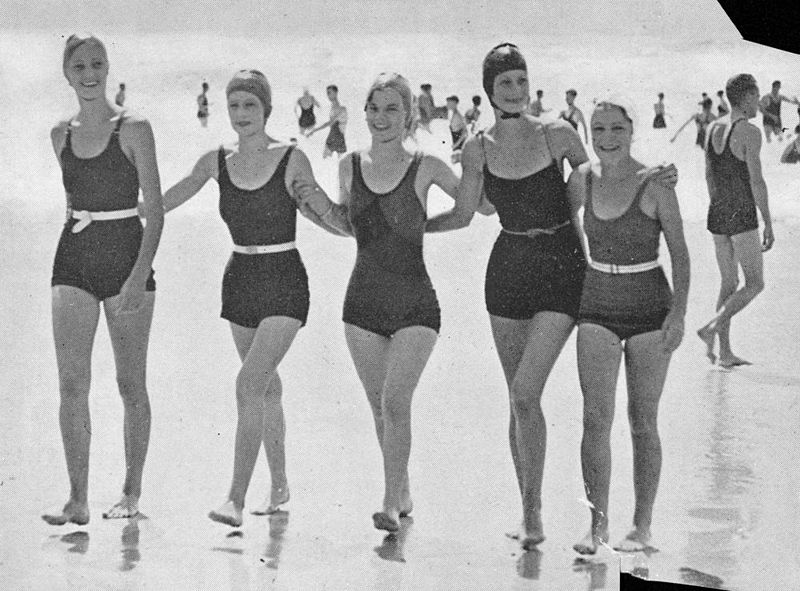the dying art of female solidarity
I texted my housemate recently to sadly inform him that I had broken ‘the gentlemen’s agreement’, and that I felt yucky. The ‘gentlemen’s agreement’ was an understanding that we would never, under any circumstance, indulge in red wine after drinking an indulgent amount of beer. He texted me back, informing me that I deserved my fate. When we crossed paths that day, it was blatantly obvious that he had also broken the gentlemen’s agreement, and that he also felt yucky. I playfully attempted to intimidate him for shaming me rather than rejoicing in our feelings of yuckiness together. It was made clear that if under threat he would in all likelihood throw up on my shoes, followed by a long bout of hysterical sobbing.
I caught up with a friend recently who had just returned from an extended period of time overseas. We spoke about the ups and downs of travel, and I offered to be a fake reference for her so she could get a new job cleaning houses. This friend and I have a mutual love of interior decorating, fake plants and searching through the depths of cheap variety stores for homewares and fake plants.
As somebody who spends the majority of their time dealing with experiences that relate to my opening story, i.e. having male housemates and being in a heterosexual relationship with somebody who also has male housemates, I find it hard to grasp why certain women choose to put the concept of being perpetually surrounded by men on a pedestal, whilst demonising the idea of female friendship.
To use my housemate as an example – and I’m only kind of sorry to do so, but he shouldn’t have shamed me – when I wake up in the morning and we both look at each other as if one of us has thrown up on the other’s footwear before any sort of formal hello, it’s never met with, ‘thank heavens I’m perpetually surrounded by men, for they are inherently immune from any sort of moodiness – including the crabbiness that comes with getting out of bed in the morning’, because it’s flagrantly untrue. That and ‘heavens’ wouldn’t normally be my first choice of word before any sort of formal caffeinated beverage.
So why are women receiving a bad reputation for possessing characteristics that everybody who has a pulse will inevitably display from time to time? What’s worse is, why are women doing it to other women, and why does society condone it?
Society condones it for the same reason that some women are hell bent on consistently putting down their own gender – negative stereotypes such as being overtly critical, vindictive and temperamental are interpreted as collective elements of femininity, and individual experiences are carried around and stapled to the foreheads of womankind.
The word “catty” is thrown around like nobody’s business when the topic of this condoning arises, and is a sexually biased way of defining girl-on-girl competitiveness.
The competitive female archetype appears often across all genres of film. Pit two females in pursuit of the same male against each other, and mayhem will inevitably ensue. Owing to the fact that women are perpetually made out to be insecure, emotionally unintelligent, and insane creatures.
The competitive male is usually an archetype in romantic comedies. Pit two males in pursuit of the same female against each other, and hilarity will inevitably ensue. This archetype is usually a romp that’s fun for the entire family, owing to the fact that it seems to be only women who are receiving the bad reputation for possessing universal mannerisms.
Perpetuation of the negative doesn’t bode well for eliminating absurd generalisations, and a very miniscule percentage of the female population who are intent to practise viciousness during their day-to-day existence are less than reputable characters that shouldn’t be celebrated for their behaviour, but the female gender as a whole shouldn’t have to suffer for it.
During previous moments in time when a group of women would decide upon alienating me, I didn’t conclude that womankind was collectively responsible for it; a group of individuals was. Instead of carrying these experiences around and warily stapling it to the forehead of every woman I encounter, I’m self-aware enough to know that while I may not have the capacity to get along with everybody, if I’m OK with myself, then a superficial appraisal of me will mean diddly squat.
When you actively deny female solidarity, you’re actively denying yourself a significant part of being a woman.



Marvellous piece of literature!
Double take in imagery though can prove a skip but it doesn’t seem too obvious here 🙂
Love your view of this crazy world x